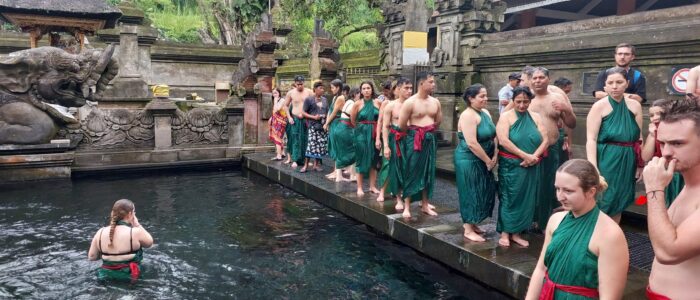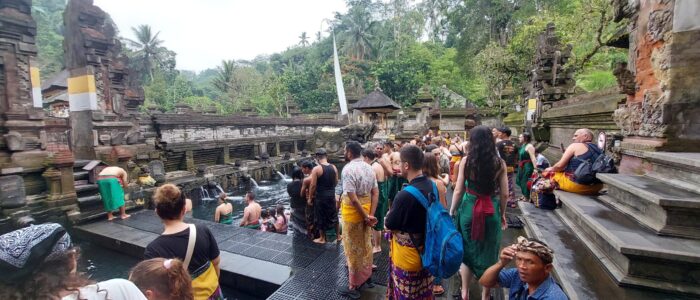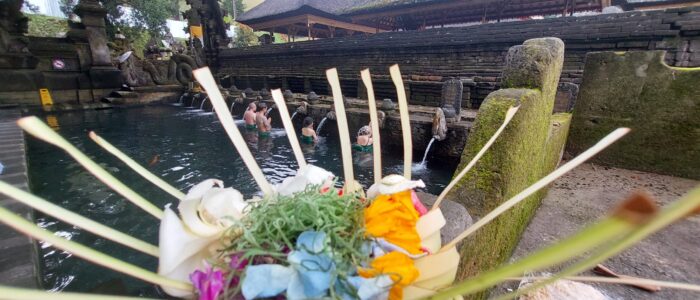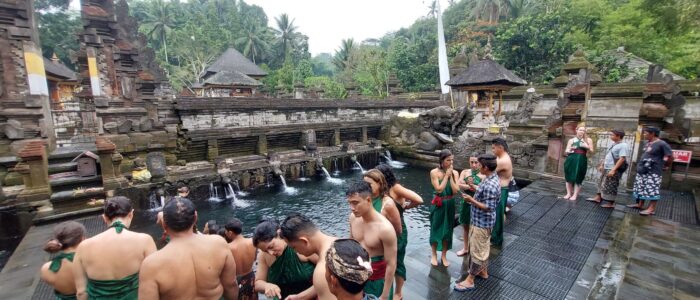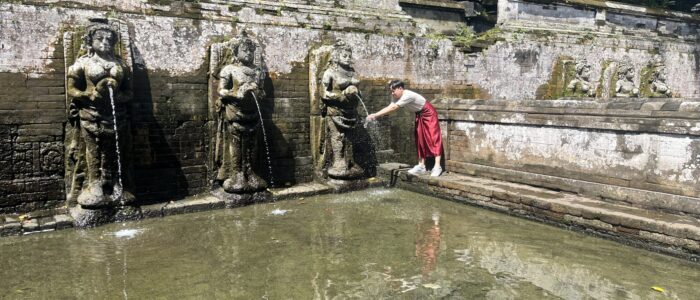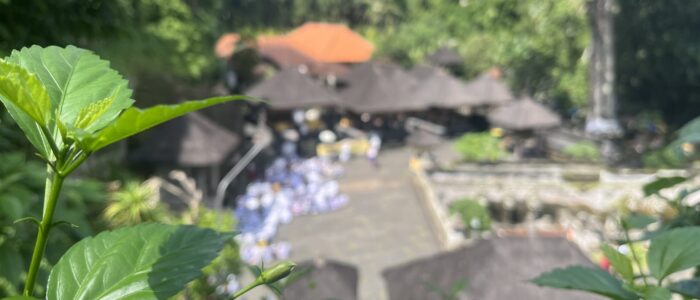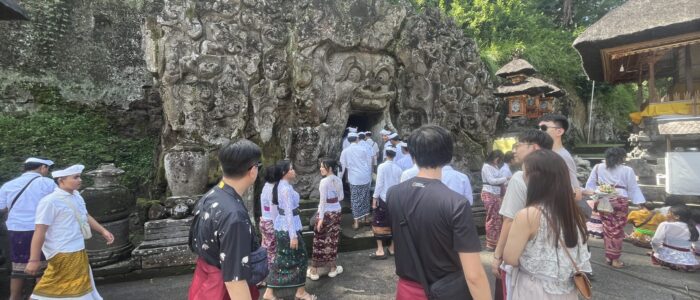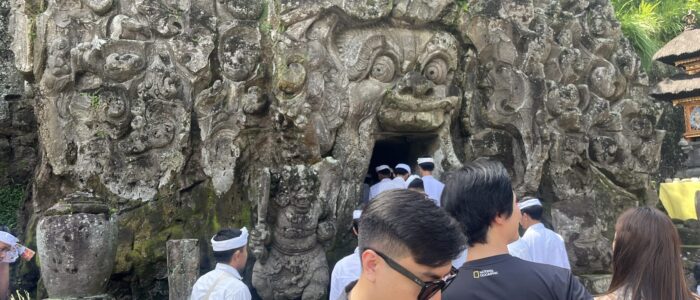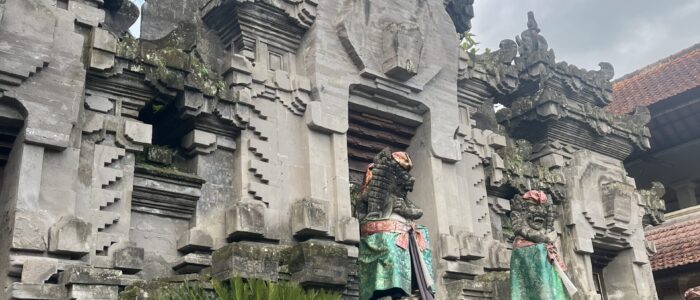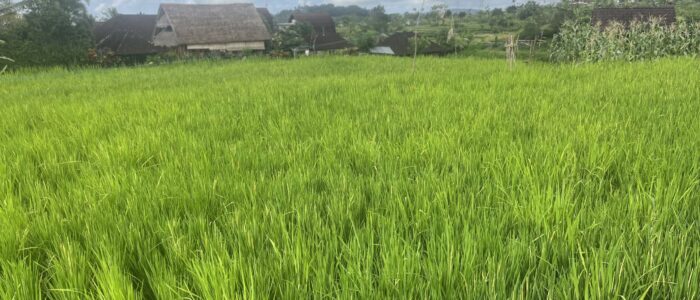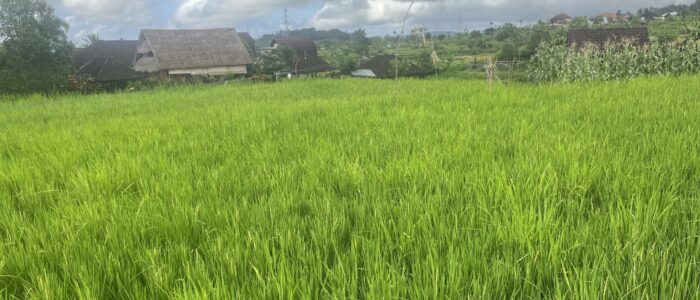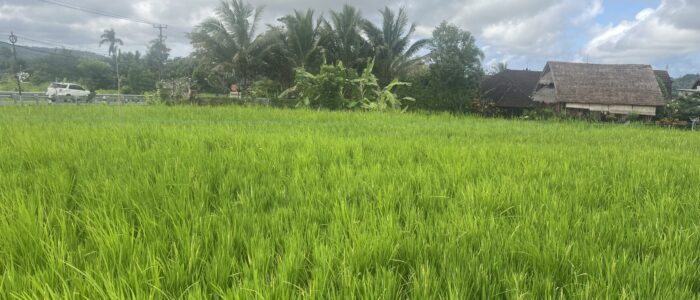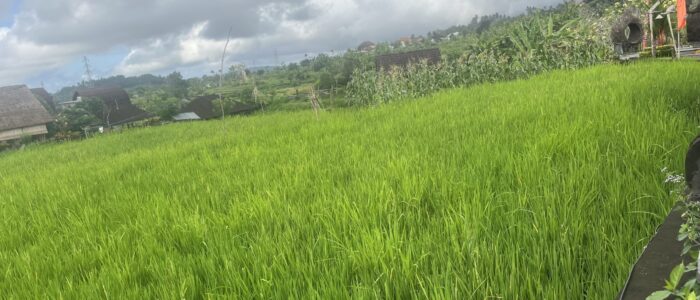Ubud, nestled in the heart of Bali, Indonesia, is a serene and culturally rich town known for its lush greenery, vibrant arts scene, and spiritual ambiance. The town is surrounded by terraced rice paddies, dense jungles, and ancient temples, offering a tranquil escape from the bustling tourist spots elsewhere on the island. Ubud is renowned for its traditional Balinese culture, with numerous art galleries, craft shops, and markets that showcase local artisans’ work. Visitors can explore the Ubud Monkey Forest, a sanctuary home to hundreds of playful monkeys and sacred temples, or take a leisurely walk through the Campuhan Ridge, which provides breathtaking views of the landscape.
In addition to its natural beauty, Ubud is a hub for wellness and spiritual retreats. It is dotted with yoga studios, meditation centers, and holistic spas, making it a perfect destination for those seeking relaxation and rejuvenation. The town also hosts various cultural performances, including traditional dance and music shows that reflect Bali’s rich heritage. Culinary enthusiasts can indulge in Ubud’s diverse food scene, which ranges from traditional Balinese cuisine to innovative, health-focused restaurants. With its harmonious blend of nature, culture, and spirituality, Ubud offers a unique and enriching experience for travelers.
Full Description
Pura goa gajah ( Elephant Cave )
Pura Goa Gajah, also known as the Elephant Cave Temple, is an archaeological site of significant historical and spiritual importance located near Ubud, Bali. Dating back to the 9th century, this sacred site features a cave adorned with intricate stone carvings of mythical creatures and deities at its entrance. Inside the cave, visitors can find ancient relics, including a statue of the Hindu god Ganesha and a sacred meditation area. The temple complex also boasts a tranquil garden with stone bathing pools, fountains, and lush greenery, creating a serene atmosphere for contemplation and exploration. Pura Goa Gajah serves as a fascinating glimpse into Bali’s rich cultural heritage and religious practices.
Pura tirta empul (Sacred Spring Water )
Pura Tirta Empul, located near the town of Tampaksiring in Bali, is a revered Hindu water temple famous for its sacred spring water. Established in 962 AD, the temple complex is dedicated to Vishnu, the Hindu god of water, and is renowned for its holy purification rituals. Visitors to Tirta Empul can observe or participate in these rituals, where devotees immerse themselves in the cool, clear waters of the bathing pools, moving from one spout to the next in a symbolic cleansing process. The temple’s architecture is a stunning example of traditional Balinese design, with intricately carved stone structures, serene courtyards, and lush surroundings. Pura Tirta Empul not only offers a spiritual experience but also provides a captivating insight into Bali’s rich cultural and religious traditions.
Tegallalang rice terrace
Tegallalang Rice Terrace, located just north of Ubud in Bali, is one of the island’s most iconic and picturesque landscapes. Known for its stunningly beautiful, steeply terraced rice fields, Tegallalang offers breathtaking views of lush, green paddies that stretch out into the horizon. The terraces are an excellent example of the traditional Balinese cooperative irrigation system called “subak,” which dates back to the 8th century and highlights the harmonious relationship between the Balinese people and their natural environment.
Visitors to Tegallalang can enjoy leisurely walks along the well-maintained paths that wind through the terraces, allowing them to immerse themselves in the tranquil beauty of the countryside. Numerous cafes and viewpoints dot the area, providing perfect spots to relax and take in the scenery. Additionally, the site is often visited by local farmers working the fields, offering a glimpse into the daily life and agricultural practices of Bali. Tegallalang Rice Terrace not only provides a visual feast for tourists but also serves as a testament to the island’s rich agricultural heritage and enduring cultural traditions.
Ubud palace
The Ubud Palace, also known as Puri Saren Agung, is a historical landmark and cultural hub located in the heart of Ubud, Bali. This royal palace served as the residence of the Ubud royal family and was built in the early 19th century during the reign of Tjokorda Putu Kandel. The palace complex showcases traditional Balinese architecture with its ornate gates, lush gardens, and intricate stone carvings, reflecting the island’s rich artistic heritage. The central courtyard, adorned with statues and detailed woodwork, is particularly notable for its aesthetic beauty and historical significance.
The Ubud Palace remains a vital cultural center, hosting traditional dance performances such as the Legong and Barong dances, which are held in the evenings and draw both locals and tourists alike. These performances offer a glimpse into Balinese culture and artistry, preserving the island’s traditions for future generations. Visitors to the palace can explore the well-preserved buildings and gardens during the day, gaining insight into the royal family’s history and the cultural significance of the site. The Ubud Palace stands as a testament to Bali’s royal heritage and its enduring cultural vibrancy.
Itinerary
- Goa Gajah Temple
- Tirta Empul Temple (Holly Spring water)
- Tegallalang Rice Terrace
- Ubud Palace
- Agro Tourism
Include
- Tourist Attraction Tickets
- Lunch
- Mineral water
- Vehicle Clean and Fragrant
- English speaking driver
- Pick-up time 08.30
Exclude
- Your own personal purchase (snacks, beers, etc.)
- Landing tax for foreign tourists
For any inquiries or to arrange a cash-on-delivery payment, please reach out to our customer service team, available 24/7.

